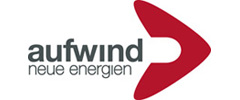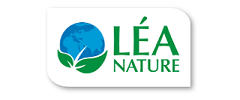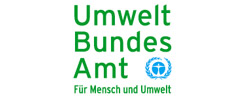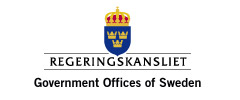Ukraine - Safe Sanitation, Health and Dignity
Implementation of dry urine diverting toilets and and waste water soil filters for schools and private households
27.04.2010
| Countries: | Ukraine |
| Donors: | Fondation Ensemble, France; Ministry of Foreign Affairs (MinBuza), The Netherlands |
| Partners: | MAMA-86, Black Sea Womens' Club |
| Issues: | Water & Sanitation |
| Duration: | 10/2007 - 09/2010 |
A three year ecological sanitation and organic waste composting program for poor rural communities. Sponsored by Fondation Ensemble (France) and the Dutch Ministry of Foreign Affairs.
The Project
The Project
The ecological sanitation approach of recycling the nutrients - following WHO safety guidelines - enables the use of sanitized urine and sanitized faeces in agriculture.
Demonstration gardens will be implemented in cooperation with the villagers to show the use of sanitized products as fertilizer.
The project is carried out by WECF and it’s partners on the field: MAMA-86 for the regions Kyiv, Sevastopol, Feodosia, Yaremche, Ternopil, Mykolayiv, Nizhyn, Artemivsk, Nova Kakhovka and Black Sea Womens' Club for the region of Odessa.
The project will focus on three areas:
- implementation and awareness raising on water source protection, safe sanitation, organic waste management, hygiene and health,
- capacity building: creating an enabling environment for replication through applied training for local builders, citizens and pupils,
- up-scaling : through the publication of case studies in cooperation with a Ukrainian University and a market analysis to identify potential enterprises interested in local production of ecosan equipment.
The project is expected to have long term positive effects: reduction of ground (drinking) water pollution, improved health of the villagers, and reduction of health cost thus leading to a reduction of poverty. Possibly, urine as fertilizer and compost as soil conditioner will increase harvests yields.
For more information on Fondation Ensemble, its programmes and fields of involvement please see www.fondationensemble.org.

For more information on MAMA-86 and BSWC please, see below.
Background information
Bad sanitary conditions are the main source of different diseases and groundwater pollution in rural areas.
According to official reports 2006 the centralised sanitation systems in the Ukraine served 95% of cities, 56% of townships and 3% of rural settlements. Only about 1.4 million (8.8%) of rural residents use centralised sanitation services. The rest 14.3 million use pit latrines or septic tanks. According to expert estimates, about 20% of the overall amount of municipal wastewater is accumulated annually in septic tanks and pit latrines that are outside of state control and regulation.
Because of this specific sanitation problem in rural areas, 36 % of all secondary schools in Ukraine are not connected to centralised or local sanitation systems. These schools use out door toilets – pit latrines.
For the recent data on sanitation in the Ukraine see also the publication of Global Water Partnership Sustainable Sanitation in the Central and Eastern European Countries - addressing the needs of small and medium size settlements, 2007.
For information about “Sustainable Rural Development in Ukraine, demonstrating solutions for water supply, sanitation and agriculture” please click here.
Goals
The main goal of the project is to provide sustainable and affordable solutions for improvement of sanitary conditions in households and schools.
School toilets are in general in a deplorable state. In rural areas schools rely on pit latrines, which are in general extremely bad-smelling without any hygiene provided: no soap and toilet paper. Many pupils do not use the toilet throughout the day and rush back home after school. To avoid any use of the latrines, school staffs drink as less as possible. In winter, what is a long time period in the Ukraine, the use of the outside pit latrines increases bladder problems, especially for girls.
The awareness and motivation level among the local population is very low. Therefore it is very important to build the capacity of rural communities in order to create a sustainable process. The project plans to train local builders and citizens for correct building, operation and maintenance of ecosan toilets, and a safe reuse of the products in the agriculture or garden.
Local population, authorities and schools will be involved in the development of water safety plans. School children will be educated on the relationship between safe sanitation, water protection, hygiene and health, and will be actively monitoring drinking water quality on nitrates (main indicator of water pollution by human and animal waste and fertilizer).
Local families will be trained on maintenance and operation of the toilets, and to develop organic waste composting programs, allowing improved agricultural activities in these impoverished communities greatly dependent on good yields.
In addition, the lessons learned will be developed in case studies including a cost analysis of the installed systems. These lessons will be formulated into policy recommendations and will be presented at local, national and international level.
In cooperation with Ukrainian, German and Dutch universities scientific results will be provided.
Eventually a business plan for investment in local production of low cost ecological sanitation equipment will be developed.
Brief information about Urine Diverting Toilets
A urine diverting toilet has two outlets and two collection systems; one for urine and one for the faeces, in order to keep these excreta fractions separate.
Urine and faeces are collected in separate containers, stored or treated, and finally used in crop production.
The urine diverting toilets can be either water-flushed or dry, exists in pedestal/risers as well as squatter models. Research and experience show that the systems function in different settings, provided that the systems are properly installed, operated and maintained.
Out of urine and faeces, it is faeces that pose the greater hygienic risk. Faeces contain large amounts of microorganisms, harmful as well as beneficial. The sanitisation of faeces has to be designed with care for large scale systems to prevent diseases from spreading as a result of handling the collected faecal matter. The WHO Guidelines on excreta use in agriculture (WHO, 2006) give recommendations on treatment of the faecal fraction.
The sanitizing process of urine can be carried out be storage in reservoirs, faecal material can be sanitised e.g. by composting, alkaline treatment or dehydration.
- WHO: Guidelines for the safe use of wastwater, excreta and greywater. Volume 4: Excreta and greywater use in agriculture
- WECF: Ecological Sanitation and Associated Hygenic Risks. An overview of existing policy making guidelines and research
The Project is based on past experience and also takes into consideration the specific sanitation situation in the Ukraine.
Previous experience of WECF on sanitation in the Ukraine
1. MATRA-Project “Co-operation for Sustainable Rural Development, Involving citizens and local authorities in rural Ukraine in improvement of drinking water, sanitation and agriculture”, carried out in cooperation with MAMA-86 from 2003-2006 with financial support of the Dutch Ministry of Foreign affairs.
In this MATRA project e.g. dry urine-diverting toilets were constructed for schools and households.
The project was implemented in 3 villages – Vorokhta (Ivano-Frankivsk, Western Ukraine), Gozhuly (Poltava, Eastern Ukraine) and Bobryk / Vertijivka (Nizhin, Northern Ukraine). More than 8.000 people in these villages benefited from the project. The solutions developed during the project are an example for other rural municipalities in Ukraine.

Ecosan toilet in Stepanovka
2. Project "Sustainable development for all" sponsored by Fondation Ensemble and carried out by WECF and "MAMA-86-Odessa" (today Black See Women's Club, and by GEOSAN, Romania. In 2006 one school toilet and one household toilet were built in the village Stepanovka (Odessa region). The district authority asked to follow with Ecosan projects in Razdelnaya district and promised their help on ecological sanitation development.
3. In Romania urine diverting toilets for the town hall of Garla Mare and for households were constructed.
Our partners
MAMA-86
All-Ukrainian Environmental Non-Governmental Organization MAMA-86 is a wide network of environmental non-governmental organisations. The NGO was found at the initiative of young mothers concerned about the post-Chernobyl accident problems and their impact on children's health. Today Mama-86 is represented by17 regional offices.
Contact person: Anna Tsvetkova, National Water and Sanitation Coordinator - responsible for MAMA-86’s project coordination in Ukraine, atsvet(at)mama-86.org.ua
Black See Women's Club
Black Sea Women's Club was founded in 2007 by Ukrainian women – NGOs leaders from Danube, Dniester and Dnipro rivers concerned about environmental problems of Black Sea. Black Sea Women's Club is a regional network of environmental NGOs from rivers falling into Black Sea and women-leader oriented to protection of water resources and promotion the ecosystem approaches gender balance.
Contact person: Sivtlana Slisarenok, Director of BSWC, slesarenok(at)ukr.net
Co-funding
The project will be co-financed by the WECF MFS-Program Empowerment and Local Action which starts in January 2008 in 10 countries of Central Asia, Caucasus and Eastern Europe.
The project found support also among Ukraine authorities:
The local authorities of Odessa support the project and are going to promote ecosan solutions with 8.000.000 UAH (ca. 100.000 EUR) from the regional budget (oblast’) and 4.000.000 (ca. 50.000 EUR) UAH from the district's budget.
More Information
The following WECF publications on ecological sanitation are available on our website.
Recent publications on sanitation in the Ukraine:
- Materials of the 1st Regional WfW Conference "Partnerships for achieving Water and Sanitation Millennium Development Goals in the EECCA region", Kiyv, November 2007
- Ecological Sanitation and Associated Hygienic Risks (WECF, Mama-86), 2006
- Sustainable Sanitation in the Central and Eastern European Countries - addressing the needs of small and medium size settlements, 2007
Ecological Sanitation Information Websites:
- www.ecosanres.org
- www.sida.se
- www.siwi.org
- www.gtz.de/ecosan
- www.otterwasser.de
- www.tu-harburg.de/aww/english/
- www.sanicon.net/themes
- www.worldwatercouncil.org
- www.ecowaters.org/ecosan
Donations:
If you want to donate money to this project, here are the bank account numbers for tax deductable donations:
The Netherlands: Women in Europe for a Common Future, WECF
- Account Number: 435 42 99 14
- IBAN: NL 84 ABNA 0435429914
- BIC: ABNANL2A ABN-AMRO Utrecht
Germany: Women in Europe for a Common Future, WECF e.V.
- Account Number: 13 1390 50
- Bank code: 701 500 00
- SWIFT: SSKMDEMM
- IBAN: DE68 7015 0000 0013 1390 50
- Bank: Stadtsparkasse München
Related News
Workshop on Water Safety Plans: Challenges and Opportunities in the Field of Water and Sanitation
On the 12th of April a workshop/training on “Water Safety Plans” took place in Kyiv at the premises of the Ministry of Regional Development, Construction and Housing of Ukraine.
27.04.2012 | WECF
Nizhyn pupils no longer run to the toilet on the street!
A new indoor toilet was opened on the eve of World Water Day in Nizhyn 19 March 2010. 42 pupils and teachers queued up for the longest line in the word - to the toilet!
26.03.2010 | Mama '86, Ukraine
WECF beaten by Foundation Niketan in toilet photo competition
WECF took part in a ' toilet competition' organised by Mambapoint TV in the Netherlands to raise more awareness for the lack of proper and sustainable sanitation in Europe and in developing countries
25.01.2010 | Chantal van den Bossche
19th of November 2009: World Toilet Day
School Sanitation in the focus of the brown bag lunch organised by GTZ for the world toilet day 2009
18.11.2009 | Claudia Wendland
Improving school sanitation in a sustainable way - WECF publishes article in Science Direct
Article by Margriet Samwel and Sascha Gabizon, WECF
02.10.2009 | Margriet Samwel and Sascha Gabizon
The first year of SSHD project in Ukraine is successfully finished
Impression of the results of the first year of the 3-year Project Safe Sanitation, Health and Dignity, sponsored by Foundation Ensemble and the Dutch Ministry of Foreign Affairs and coordinated by WECF,
03.12.2008 | Olga Plekhanova






































